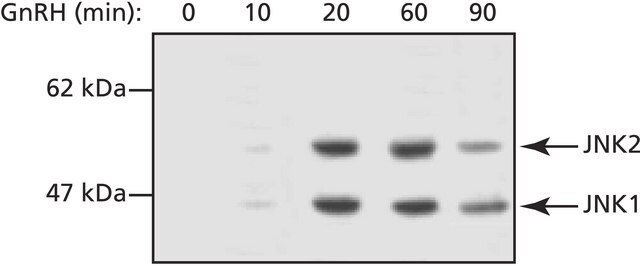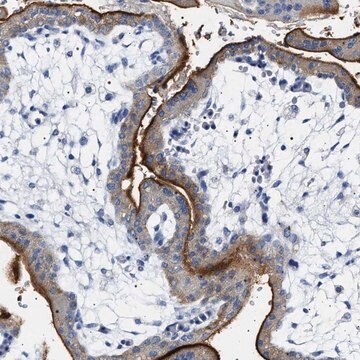MABS1910
Anti-Signal peptide peptidase-like 3 Antibody, clone 7F9
clone 7F9, from mouse
Synonyme(s) :
Signal peptide peptidase-like 3, SPP-like 3, Intramembrane protease 2, IMP-2, Presenilin homologous protein 1, PSH1, Presenilin-like protein 4
About This Item
Produits recommandés
Source biologique
mouse
Niveau de qualité
Forme d'anticorps
purified immunoglobulin
Type de produit anticorps
primary antibodies
Clone
7F9, monoclonal
Espèces réactives
human
Conditionnement
antibody small pack of 25 μg
Technique(s)
immunoprecipitation (IP): suitable
western blot: suitable
Isotype
IgG1κ
Numéro d'accès NCBI
Numéro d'accès UniProt
Conditions d'expédition
ambient
Modification post-traductionnelle de la cible
unmodified
Informations sur le gène
human ... SPPL3(121665)
Description générale
Spécificité
Immunogène
Application
Signaling
Immunoprecipitation Analysis: A representative lot detected Signal peptide peptidase-like 3 in Immunoprecipitation applications (Voss, M., et. al. (2012). J Biol Chem. 287(52):43401-9).
Qualité
Western Blotting Analysis: 1 µg/mL of this antibody detected Signal peptide peptidase-like 3 in HEK293 cell lysate.
Description de la cible
Forme physique
Stockage et stabilité
Autres remarques
Clause de non-responsabilité
Vous ne trouvez pas le bon produit ?
Essayez notre Outil de sélection de produits.
Code de la classe de stockage
12 - Non Combustible Liquids
Classe de danger pour l'eau (WGK)
WGK 1
Point d'éclair (°F)
does not flash
Point d'éclair (°C)
does not flash
Certificats d'analyse (COA)
Recherchez un Certificats d'analyse (COA) en saisissant le numéro de lot du produit. Les numéros de lot figurent sur l'étiquette du produit après les mots "Lot" ou "Batch".
Déjà en possession de ce produit ?
Retrouvez la documentation relative aux produits que vous avez récemment achetés dans la Bibliothèque de documents.
Notre équipe de scientifiques dispose d'une expérience dans tous les secteurs de la recherche, notamment en sciences de la vie, science des matériaux, synthèse chimique, chromatographie, analyse et dans de nombreux autres domaines..
Contacter notre Service technique







